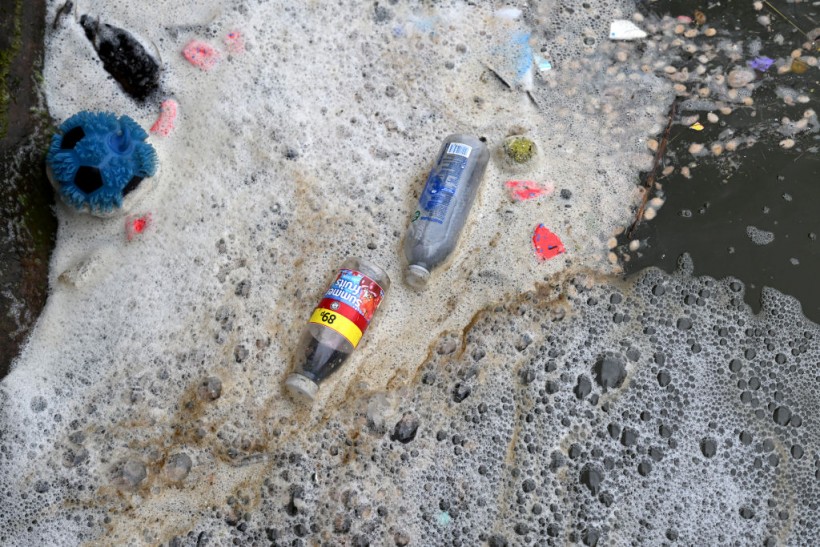Plastic pollution is a global environmental issue that affects the human population and animals. People can find ways to be sustainable, and contribute to reducing plastic waste.
The increasing production of plastics, including microplastics, poses a significant threat to public health and wildlife. Recent reports from Nature World News (NWN) emphasize that plastic waste can affect animal behavior, and worsen flooding, particularly for low-lying communities.
Additionally, understanding the impacts of plastic waste will provide new insights into mitigation efforts. In this article, it will feature eight ways to be sustainable and reduce plastic waste.
Transitioning to reusable alternatives

(Photo : by PAUL ELLIS/AFP via Getty Images)
With the growing plastic pollution, homeowners can turn to reusable alternatives, reducing single-plastic use. Bringing glass food containers and small fabric bags can significantly help.
For example, instead of buying plastic bottled water, it is best to bring bottled water. In this way, people can mitigate their reliance on single-use plastics, particularly the following:
- plastic bags
- plastic straws
- plastic cultery
- plastic bottles
Reports reveal that about one million plastic bottles are bought per minute.
Additionally, people should not buy products with excessive or unnecessary plastic cover. It is advisable to inform the supermarket or store to avoid wrapping items with unnecessary plastic.
Help with plastic-free initiatives
Plastic-tree initiatives or cleanups are one of the best ways to contribute to the environment and the Earth. Many groups advocate for plastic mitigation. Joining in plastic cleanup will help clean rivers, beaches, and communities, preventing potential impacts on wildlife.
Businesses can implement strategies to reduce plastic waste at home. By reducing the company's plastic waste, it can spark changes in the environment.
Improving recycling habits
Improved recycling habitats can prevent plastics from entering the world's oceans. Properly arranging recyclable products can reduce pollution and protect the environment, according to a recent report.
The report raised concerns about the 400 million tonnes of plastic waste produced every year, causing potential impacts on communities. In a recent NWN report, plastic waste can expose people to frequent flooding
Advocating sustainability and fighting against plastic pollution
One way to mitigate plastic pollution is through education and public awareness. At an early age, homeowners should teach their children about the proper disposal of plastics. Additionally, conducting seminars and projects can raise awareness about the growing risks of plastic pollution.
Collect any scattered plastic and throw it in the proper areas
Scattered plastic waste can contaminate the oceans and wildlife. People seeing plastic in their communities, from cups and many more, should throw it in designated areas. In this way, it can potentially prevent risks to other animals.
Also Read: 5 Important Ways to Teach Kids About the Environment For Greener Future
Plastic Regulation
Officials should adopt plans to reduce potential plastic threats, particularly those impacting wildlife. Avoiding single-use plastics and adopting environment-friendly ways can save the planet from alarming plastic waste. People should advocate for policies that can mitigate the impacts of plastic pollution.
Related Article: Environmental Pollution: New York Initiates 'Trash Revolution' to Tackle Growing Waste, Rat Infestation [Report]
For more similar stories, don't forget to follow Nature World News.
© 2024 NatureWorldNews.com All rights reserved. Do not reproduce without permission.





